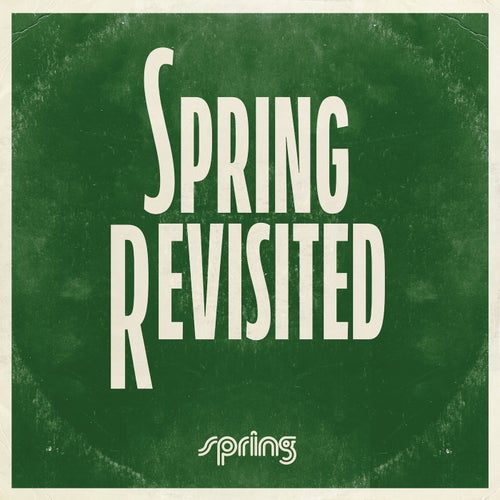His loping melodic bassline was the first thing you heard on ‘The Stone Roses’, gliding across the cosmic opening of ‘I Wanna Be Adored’, and the last thing you remembered of the record – driving the euphoric psych rock coda of ‘I Am The Resurrection’. Snaked around John Squire’s chiming guitar work, it was the winding core of The Stone Roses’ groove and the jolting heartbeat of the entire Madchester movement.
Gary “Mani” Mounfield, who died today (November 20) aged 63, held a rare place in the world of bass heroes; just as much as the melodies and the mercurial playing he supported on the band’s legendary 1989 debut album, he drafted and defined a scene with some of the most infectious and hypnotic basslines ever recorded.
Among his more silent, surly and boggle-eyed peers, the Manchester mainstay also became the amenable face of baggy and one of the most revered bassists of his generation. Going on to join Primal Scream in the wake of The Roses’ split in 1996, Mani was at the core of the group’s highly acclaimed and influential future rock rejuvenation with 1997’s ‘Vanishing Point’ and 2000’s ‘XTRMNTR’ and, having crossed from one seminal rock act to another – via a supportive-cum-disruptive role around the major recordings of Oasis – became a much-loved, era-straddling figure at the core of ‘90s music and beyond.
Born in Crumpsall in 1962, Mounfield attended Rusholme’s Roman Catholic Xaverian College until leaving at the age of 16, soon finding himself embroiled in the Manchester music scene of the early 1980s. Around 1981, he joined The Fireside Chaps with Squire and singer/guitarist Andy Couzens; having changed their name to the Waterfront, they very nearly became The Stone Roses when Ian Brown joined as singer in 1983. The band floundered and split, though, and Mounfield spent some time in another band called The Mill (who played live as The Hungry Socks) with Clint Boon – soon to form the Inspiral Carpets – while The Roses evolved without him, finding local success with jangle-heavy indiepop fare such as ‘Sally Cinnamon’.
In June 1987, however, bassist Pete Garner quit the band, and Mani was recruited as his replacement. On his arrival, the tone and depth of The Stone Roses’ music instantly evolved into a sound in tune with the elastic groove of the emergent dance scene and the amorphous melodicism of indie rock at once. It would make The Stone Roses the definitive band of the baggy era. “When Mani joined, it almost changed overnight,” Brown said. “It became a totally different groove…Straight away, everything just fell into place.”
 The Stone Roses in 2011, l-r John Squire, Mani, Ian Brown, and Reni. Credit: Dave J. Hogan/Getty Images
The Stone Roses in 2011, l-r John Squire, Mani, Ian Brown, and Reni. Credit: Dave J. Hogan/Getty Images
Both weighty and melodic, Mani’s bewitching basslines became the bedrock and, often, the driving force of The Roses’ breakthrough tracks ‘Elephant Stone’, ‘Made Of Stone’ and ‘She Bangs The Drums’, and underpinned the band’s low-slung funk development on ‘Fools Gold’ – arguably a four-minute encapsulation of the entire late-’80s dance rock scene.
Following the debut album’s Top Five success, The Stone Roses’ cultural coronation at the “baggy Woodstock” Spike Island in 1990 – and legal wrangles with label Silvertone which kept the band from releasing any new material for several years following 1990’s ‘One Love’ single – it was Mani’s dense, funky bass which provided the major through-line to their second album ‘Second Coming’ in 1994: a record otherwise dominated by Squire’s more blues rock tendencies. In the fallout which followed, culminating in a notoriously poorly-received headline set at Reading Festival in 1996, Mounfield was Brown’s only permanent ally in the band as Squire and drummer Alan “Reni” Wren departed.
A popular figure in the ’90s alt-rock scene – he was revered by the Gallagher brothers, who had been inspired to form Oasis by watching The Stone Roses perform – Mounfield quickly found himself taken in by Primal Scream, one of just three bands he’d claim to be willing to join (the others being The Jesus & Mary Chain and Oasis).
Fortuitously, he arrived just as the Scream were making a giant leap away from their own country-blues era on 1994’s ‘Give Out But Don’t Give Up’ towards a period of dark, experimental dance rock which would see them reappraised for a second time (following 1990’s ‘Screamadelica’) as one of the most important groups of the decade. Indeed, Mounfield’s upbeat attitude and musical energy have been credited with reviving the band, amid talk of splitting after the disheartening and drug-heavy experience of ‘Give Out…’.
 Bobby Gillespie and Mani celebrate Primal Scream’s Godlike Genius award at the 2007 NME Awards. Credit: Claire Greenway/Getty Images
Bobby Gillespie and Mani celebrate Primal Scream’s Godlike Genius award at the 2007 NME Awards. Credit: Claire Greenway/Getty Images
Acriss 15 years and five albums with Primal Scream, encompassing experimental rock masterpieces (‘XTRMNTR’) and blues rock revivals (‘Riot City Blues’ in 2006), Mani acted as frontman Bobby Gillespie’s right-hand man, while also managing to fit in stints with bass-player supergroup Freebass – alongside New Order’s Peter Hook, The Smiths’ Andy Rourke and Haven’s Gary Briggs – and tours with Ocean Colour Scene and guest appearances at Ian Brown solo shows. In 2011, he left the Scream for good to rejoin The Stone Roses, playing major festival sets and stadium shows with the group until their ultimate disbanding in 2017.
Less than a week after announcing a talking tour, An Evening With Gary “Mani” Mounfield, which was set to begin in September 2026, Mani’s death was confirmed in an online statement by his brother Greg. He added that the bassist was joining his wife Imelda, mother of their twin sons, who died from cancer in 2023. His groove will continue to infect generations: his legacy made of stone.



















 English (US) ·
English (US) ·